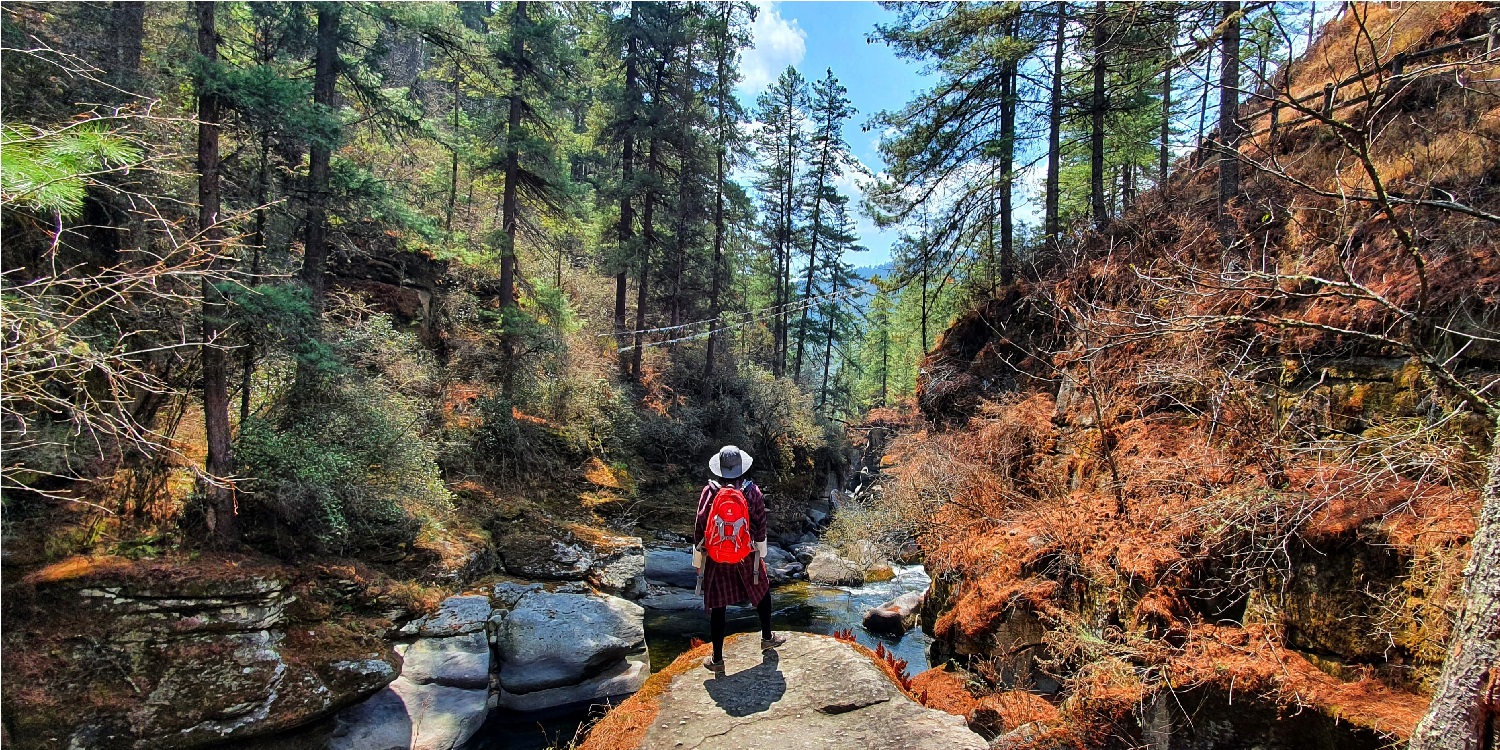The historic Trans Bhutan Trail was reopened this fall after decades of disuse and disrepair. The 250-mile cross-country trek was all but abandoned after the construction of more convenient highways in the 1960s. Now hikers can go on it once again.
The Trans Bhutan Trail Is Now Open

Ambitious hikers can try the Trans Bhutan Trail along its entire length through the southern end of the Eastern Himalayas. The trail goes through fortresses, villages, rice paddies, old temples, suspension bridges, and forests. It also offers plenty of views and experiences in the wilderness and capital cities. It is a true cross-country trek that celebrates the kingdom’s past, present, and future.
Apparently, the Trans Bhutan Trail dates as far back as the 16th century, and over that time, it has served many purposes. It was a popular route for religious Buddhism pilgrimage, soldiers and armies, and legendary couriers who ran its length to deliver secret messages and mail. The route was also crucial for the local economy and provided access to trade.
The Restoration Took Three Years

After the construction of highways in the country sent the trail into neglect and nature erased miles of the path, the king of Bhutan, Jigme Khesar Namgyel Wangchuck, decided to rehabilitate it and announced his decision in 2019. It took the country three years to make it happen, but as of September 28, 2022, the Trans Bhutan Trail’s entire length is once again open for locals and international travelers who want to bike, hike, or run.
Hikers can experience various landscapes throughout the Trans Bhutan Trail. These range from rugged mountain passes to lush forests and expansive wilderness. The trail also passes through villages, temples, and major cities, and hikers can even stay at campsites with showers and permanent tents. There are even three-star hotels in the towns that the trail passes through.
The Trans Bhutan Trail Connects Many Communities
 The Trans Bhutan Trail connects many villages and communities that were disconnected for decades. It owes its current existence to a collaboration between government, non-profit, and community organizations. The Royal Government of Bhutan, local governments and trail communities, the Tourism Council of Bhutan, the National Land Commission, public agencies, the Scouts Association of Bhutan, and volunteers from the DeSuung organization all did their part to restore the trail. The Bhutanese people were also actively involved with many volunteering on restoration projects.
The Trans Bhutan Trail connects many villages and communities that were disconnected for decades. It owes its current existence to a collaboration between government, non-profit, and community organizations. The Royal Government of Bhutan, local governments and trail communities, the Tourism Council of Bhutan, the National Land Commission, public agencies, the Scouts Association of Bhutan, and volunteers from the DeSuung organization all did their part to restore the trail. The Bhutanese people were also actively involved with many volunteering on restoration projects.
So, hikers who want to tackle the trail can experience Bhutan’s terrain, its history, and its modern-day culture. No permits are currently required to hike the trail, although international visitors have to hire a guide throughout the trail and all of Bhutan for the duration of their stay.